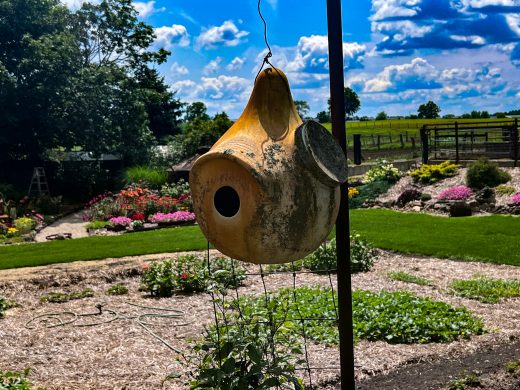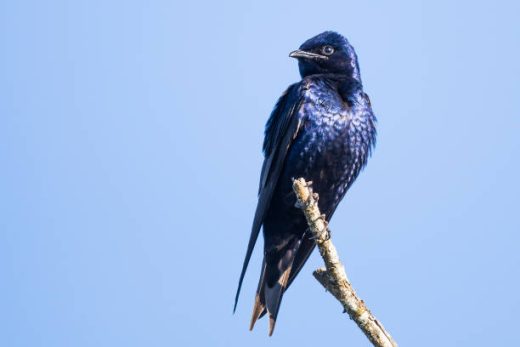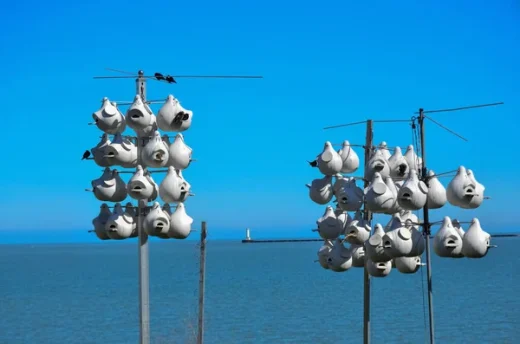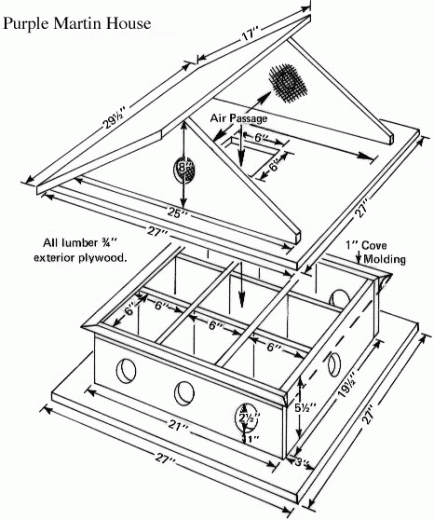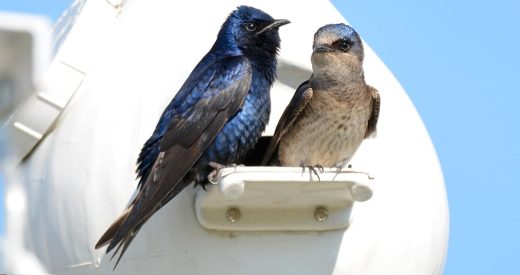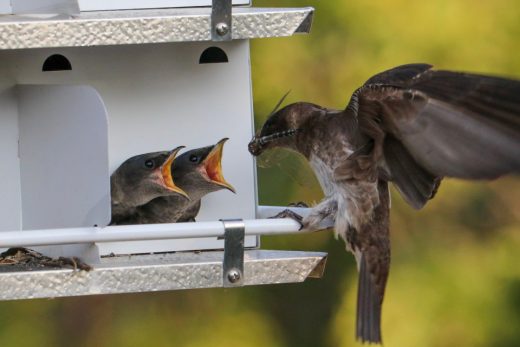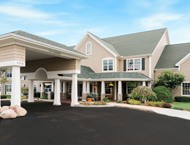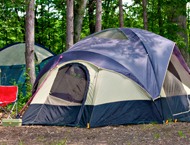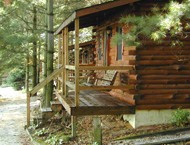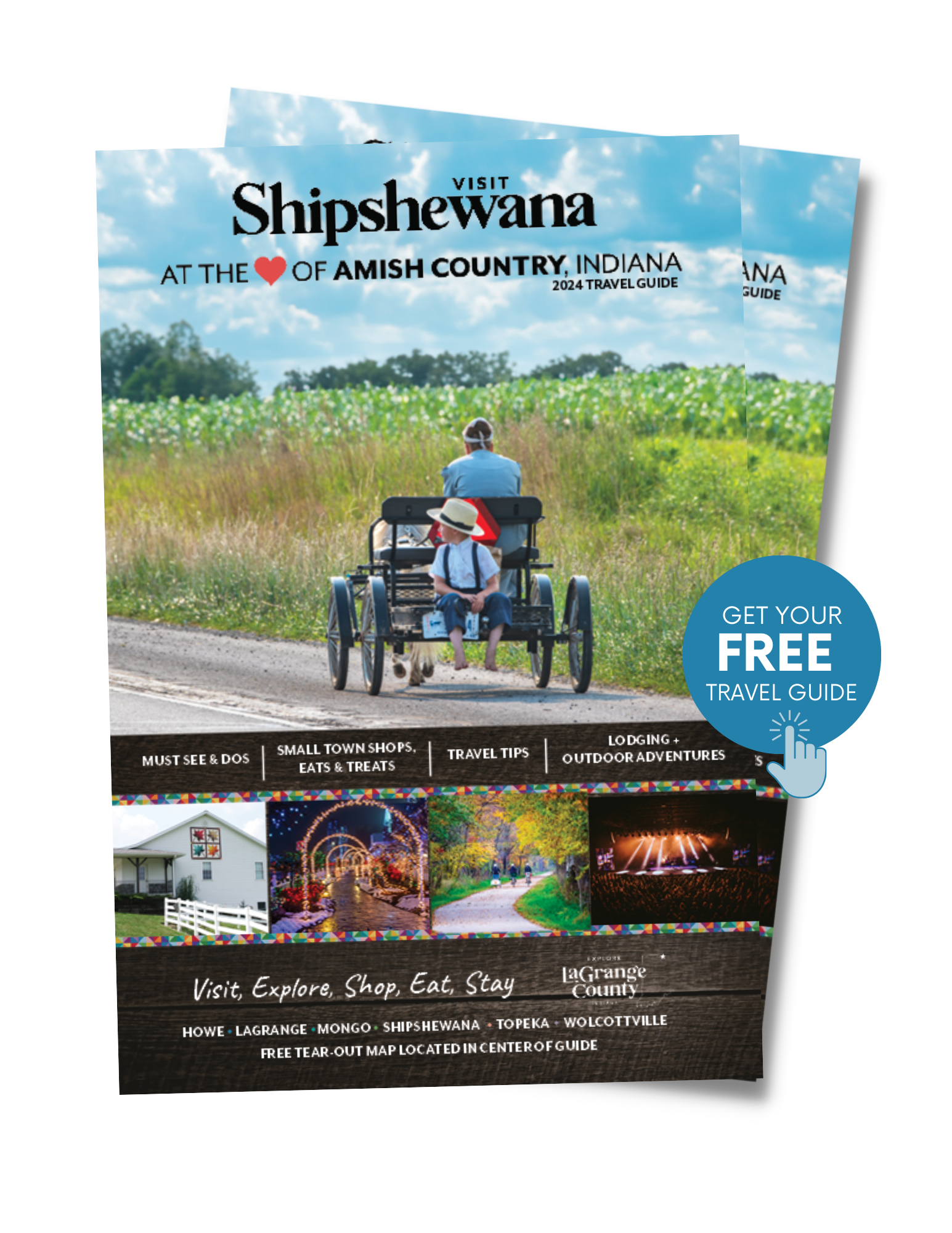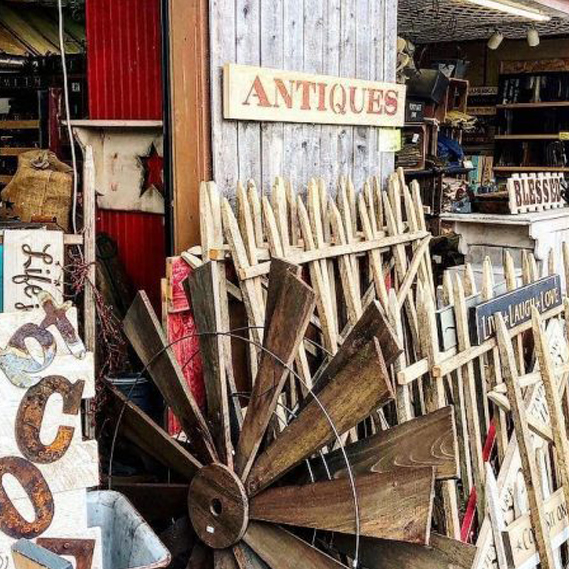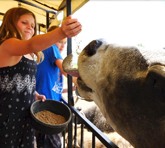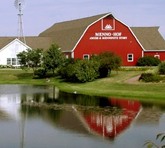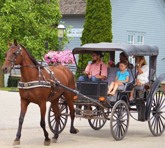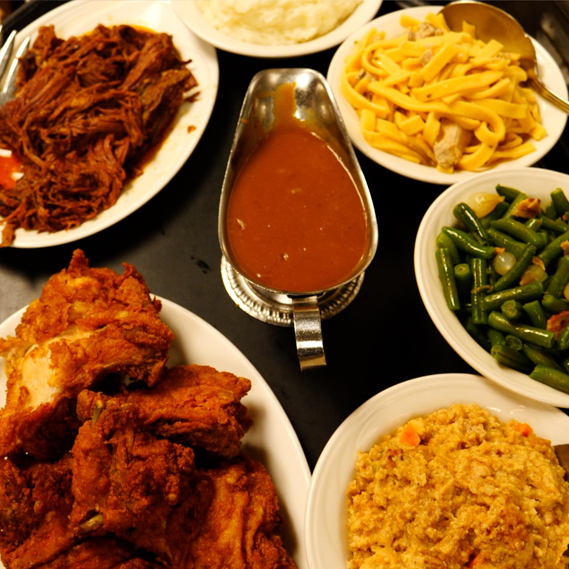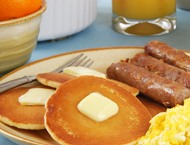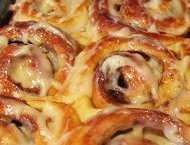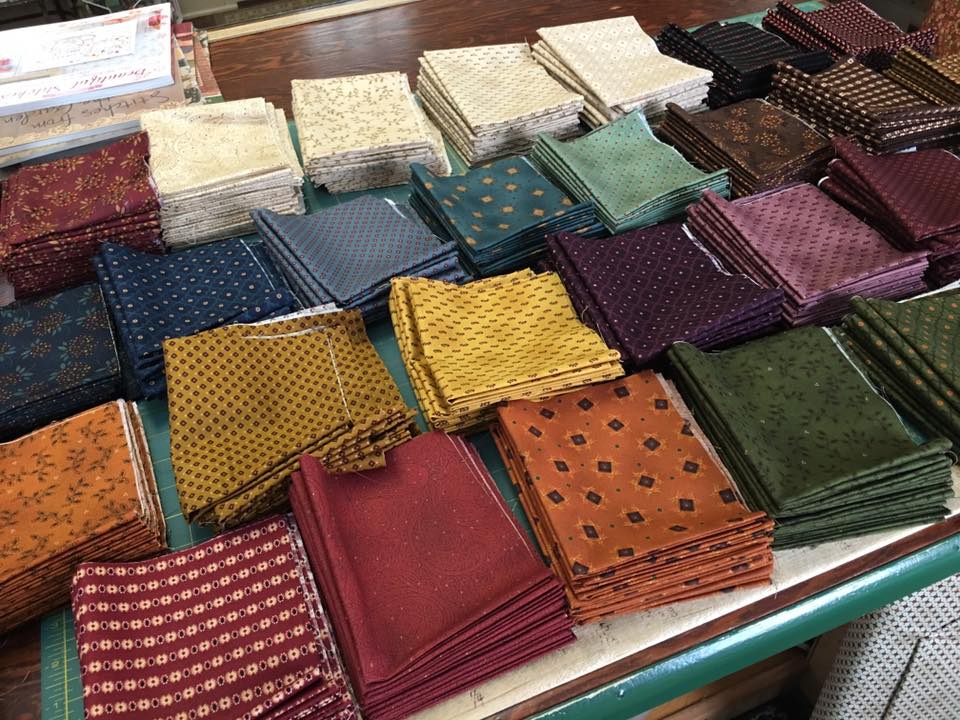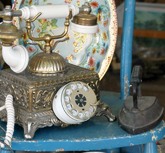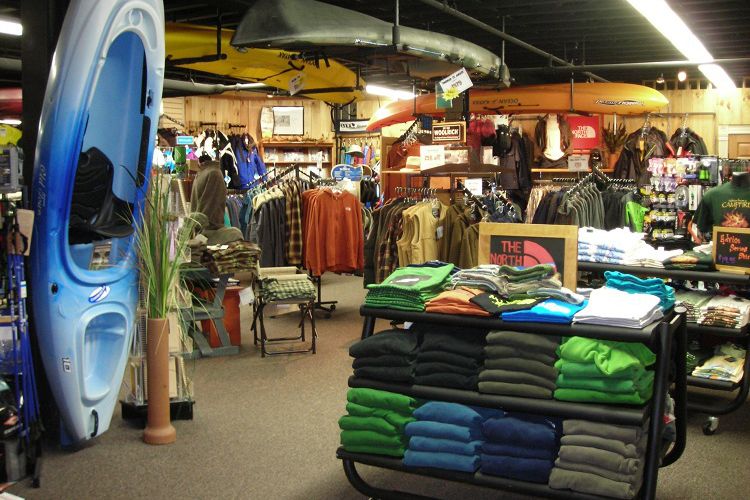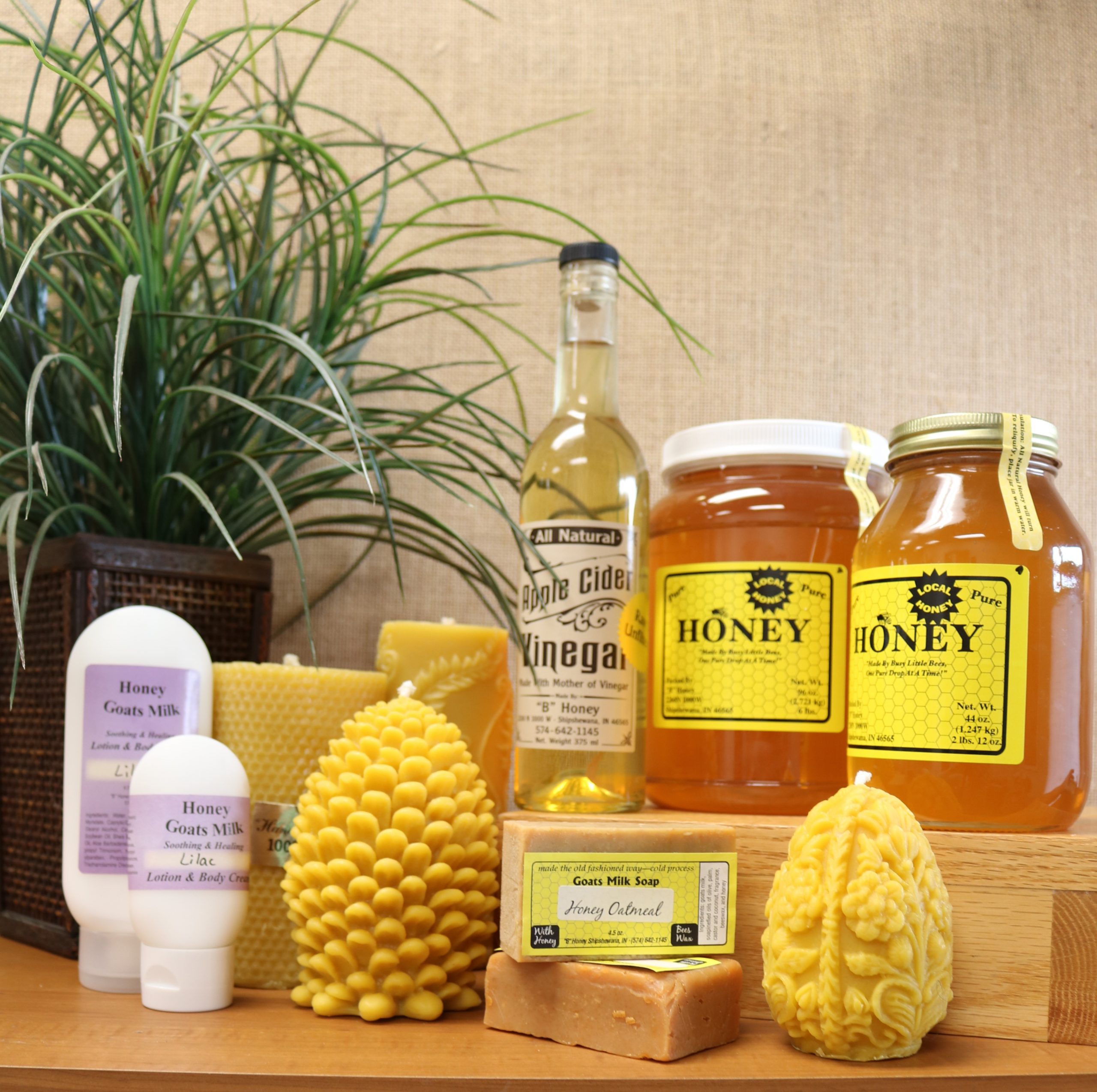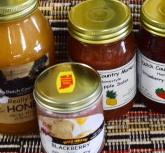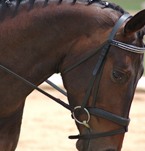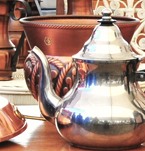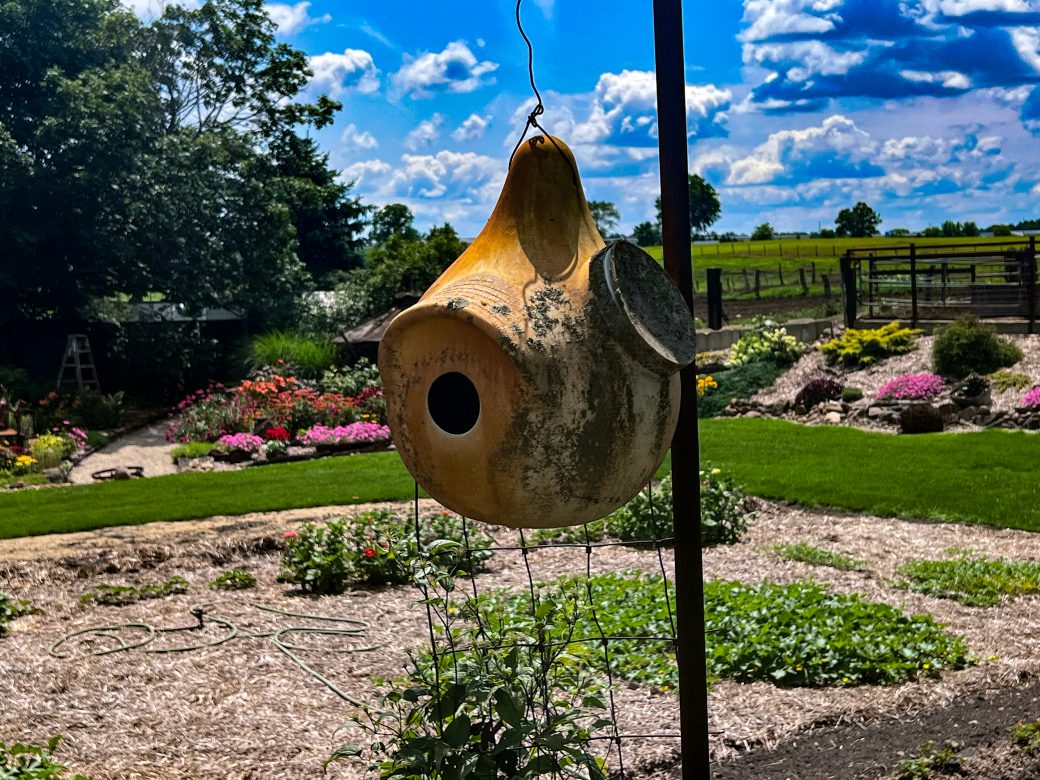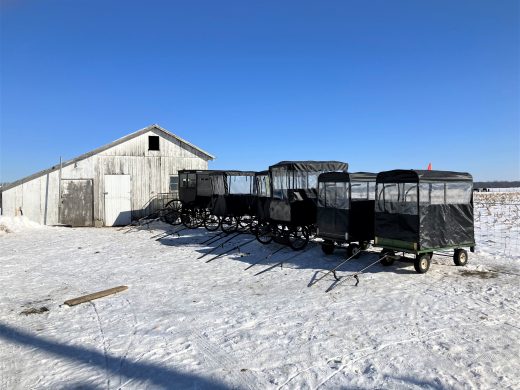The beneficial relationship between Purple Martins, a type of sparrow, and humans goes back hundreds of years in North America. Purple Martins are voracious consumers of insects, especially mosquitoes, and early Native Americans figured out that attracting them to their land was beneficial to all the people and animals that lived there. Historically, Purple Martins would make their homes in pre-made nesting spots, like abandoned woodpecker holes. By providing suitable nesting spots, people drew larger and larger groups of these birds near to their homes.
The first man-made nests for Purple Martins were made from hollowed-out gourds, and though you can still find that method being used today, most are now produced with more durable, man-made materials. There are two types of homes that can be set up. The first look just like gourds, the same size, and same shape, but they are white. You can see rows and rows of them strung high up in the air, on or between tall poles. The optimum placement is between 10 and 15 feet in the air, as well as at least 60 feet from the nearest building.
The second type is much larger, and resembles square, white apartment complexes. These nesting boxes can house multiple families of birds. Many people who purposely seek to house Purple Martins erect many nests in the same area, so they’re able to host dozens, or even hundreds of birds. The birds live and travel in colonies, and though they do migrate for the winter, they will usually return to the exact same place that they lived before. The best way to garner repeat bird business is to keep an eye on the nests and take them down for cleaning once the birds have migrated south.
Currently, the most common spot to see these amazing bird neighborhoods is an Amish farm. Aside from the mosquito-easing aspect of the Purple Martins, they are also pretty to see, fascinating to watch, and lovely singers. Many farmers are carrying on a bird-hosting tradition that has lasted for generations in their families, and it’s common for the upkeep and care to be one of the responsibilities of the children.
Shipshewana, Indiana is home to dozens of farms that host large Purple Martin communities that you can see when you’re touring the countryside. There is also a locally owned business called Nature Unlimited with knowledgeable people that can answer all your Purple Martin questions.
ADDRESS: 219 Nature Trail, Topeka, IN 46571
PHONE: 260-593-0610
HOURS: Monday-Saturday 8am-5pm
SHOP DESCRIPTION: “Beautiful, unique store and greenhouse. Specializing in Purple Martin houses, bird feed and outdoor décor & provisions. Let us help you make your home and garden attractive to specialty birds and animals with our large variety of feeders and supplies.”
